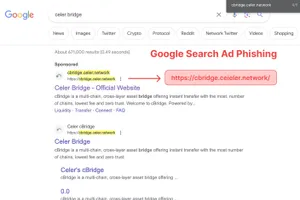A user asked what would happen to remaining seed money, if any, in a Twitter reply. Garfield answered that they "still have a meaningful portion of our seed funding" but that he hadn't decided what to do with it.
Clockwork project to shut down due to "limited commercial upside"
Balancer drained of over $2 million following vulnerability warning
Balancer acknowledged the hack, writing on Twitter that "Balancer is aware of an exploit related to the vulnerability [disclosed on August 22]. Mitigation procedures have drastically reduced risks, but [we] are unable to pause affected pools." They reiterated that users needed to withdraw funds from affected liquidity pools to prevent further thefts.
The blockchain researcher known on Twitter as MevRefund questioned why Balancer didn't execute a whitehat attack on their own protocol to try to safeguard the vulnerable funds.
NFT collector SOL Big Brain loses around $1.5 million to phishing scam
However, the attacker had set up a contract which used permit phishing to drain SOL Big Brain's wallet. He lost $740,000 in stablecoins, $550,000 in ETH, and another $200,000 in the GEAR token.
"Today is a bad day," wrote SOL Big Brain on Twitter.
Magnate Finance rug pulls for over $5.2 million
Sure enough, within an hour of zachxbt's tweet, the project drained $5.2 million from the protocol and deleted its website and Telegram group.
According to zachxbt, the project also shared on-chain links to the March 2023 Kokomo Finance rug pull, which saw its perpetrators profit around $4.5 million.
Members of $PEPE team allegedly dump $16.9 million worth of tokens
The transfers and change to the multisig sparked fears that the project was rug pulling, or had been hacked. This led to a massive $PEPE sell-off, with the token plunging around 17%.
A day after the transfers, a PEPE team member posted on the project's Twitter account, alleging that the transfers were indeed theft by three of the project's other team members.
U.S. Drug Enforcement Administration sends over $50,000 to a scammer
Someone observed the DEA wallet send a small test transaction before transferring the remaining seized funds, and quickly used a crypto wallet address with identical characters at the beginning and end to send an airdrop to the DEA source wallet. When the DEA agent went to send the remaining funds, they copied-and-pasted the address, believing it was the same one they'd sent the test transaction to. This is a common scam in the crypto world known as "address poisoning", and is successful primarily because crypto wallet addresses are very long strings of characters that people usually copy-and-paste, and only identify by the characters at the start and end.
Upon discovering that they'd been duped, the DEA contacted Tether to ask them to freeze the funds. However, by that time, the scammer had already converted the money into ETH, which couldn't be frozen. The DEA is now working with the FBI to try to trace the theft.
Former New Jersey prison guard charged by SEC over crypto pump-and-dump scheme targeted at cops
Rather than "100x-ing", the token immediately plummeted when DeSalvo sold his ~41 billion Blazar tokens. DeSalvo is accused of using his profits from the scheme to speculate on other crypto tokens, pay for personal expenses, and reimburse one investor who threatened legal action.
DeSalvo is also being charged over a separate investment scheme he operated, where he solicited investments on Facebook, promising to use his claimed trading expertise to earn massive returns. The SEC alleges he lost most of the money in bad investments, and stole the rest for himself, blaming the losses on market movements.
DOJ charges two founders of Tornado Cash, arrests one
The Feds claim that the two founders knew Tornado Cash was widely being used to launder hundreds of millions of dollars by North Korea, but "turned a blind eye" and claimed to be complaint with sanctions laws. They also state that they refused to implement anti-money laundering and KYC programs, as is required of money transmitting services.
These charges are likely to be controversial — as has been the sanctioning of Tornado Cash — among crypto advocates and others, as they run up against thorny First Amendment questions and conflicting ideas about who, if anyone, is liable for running decentralized services.
Users pull $150 million in funds from Balancer protocol within hours after reports of a critical vulnerability
Balancer had around $850 million TVL prior to the announcement. Since revealing the issue, users have removed more than $150 million in assets from the project. Balancer has stated that "only 1.4% of the total TVL is at risk", though 1.4% of $850 million would still be a sizeable $12 million windfall for any potential exploiter.
Victim loses $900,000 to Google Ad phishing
On August 21, an individual searched for "celer bridge" to find the website for the Celer blockchain bridge. The first result appeared legitimate, even displaying the correct URL for the actual Celer bridge. However, once they clicked the result, they were redirected to a phishing website.
Once the victim connected their crypto wallet, it was immediately drained of $900,000 in the USDC stablecoin. They wrote on Twitter that it was "most of [their] net worth".







